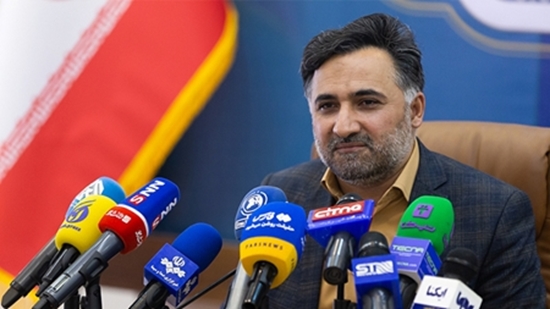The second part of the media meeting by the vice president of science, technology and knowledge-based economy;
Dehghani: increasing the share of cooperatives in the knowledge-based economy
The vice president of science, technology and knowledge-based economy answered their questions in the field of activities and achievements, plans, future prospects in the presence of the media.

Development of collective investment models with the role of people
Referring to the support of the formation and implementation of new and innovative investment models in knowledge-based companies, the head of the National Elites Foundation, especially with the support and role-playing of people, said: Considering the valuable and effective achievements of knowledge-based companies, the culture, capability and efficiency of these companies is well visible to people. We seek to increase the role of people in the development of these companies with the help of models with mutual benefits for people and companies; Based on this, we have prepared the ground for the implementation of models such as crowdfunding and technology investment funds using micro and macro funds of people, this model is especially for the development of areas where people can benefit from investing in them, and by the way, the territorial advantage of our country as well. Yes, it will lead the way, like the exploitation of greenhouses and the development of food security.
Referring to bringing together large government departments in the form of agreements and cooperation contracts for investing in knowledge bases and creating investment funds, he said: these contracts have been signed with large areas including the oil, petrochemical and mining industries, and for example, by next week a big mining fund is formed with the participation of big activists in this field. The products supported by this fund will be approved by the Technology Steering Council and the capacity for branding will be created.
Referring to the creation of the capacity to attract foreign investment, Dehghani said: I believe that foreign investment is one of the requirements for the development of the economy, and we need to have specific mechanisms for the development of this knowledge-based economy. With the efforts of the Center for International Interactions of Science and Technology, the ground has been created for interaction with several major countries of the world, and we hope that with the realization of this process, the development of international investment in knowledge-based companies will also flourish.
Referring to the involvement of banks and public investment structures in the knowledge-based field, the vice president of science, technology and knowledge-based economy said: We are looking for the formation of an investment model and system that fits the nature and capabilities of banks, financial institutions and credit funds, rather than knowledge-based companies, in accordance with the basis of technology and intellectual property, to evaluate and grant them facilities. Also, increase the volume and capability of knowledge-based companies in providing guarantees and collateral.
Dehghani, referring to the targeting of the support of the Vice Presidency of Science, Technology and Knowledge-Based Economy in 5 strategic priorities, said: these areas include support for ideas and the production of thought on the basis of think tanks, support for the production of knowledge and technology in universities, support for the production and technology development in knowledge-based companies, support for the development of knowledge-based economy in large enterprises and support for entrepreneurship development in growth and innovation centers, budget and strategic support have been determined.
Supporting knowledge-based productions in the Knowledge-Based Production Leap Law
Vice President of Science, Technology and Knowledge-Based Economy, by stating that Clause "P" of Article 10 of the "Knowledge-Based Production Leap Law", whose regulations were promulgated by the honorable President, provides the basis for the non-competition of the public sector with the knowledge-based field. Said: According to this section of the law, the actions of ministries, organizations and state companies should not cause competition with knowledge-based companies and institutions, technological units located in growth centers and science and technology parks. The recognition is an example of competition with the steering council of knowledge-based technologies and productions in the vice-presidency of science, technology and knowledge-based economy.
Dehghani continued: Of course, it is definitely necessary to invest the public sector in the knowledge-based sector, because the investment of the private sector alone will not be enough for the prosperity of this field. The public sector should play a role in this field, especially in the sectors where the private sector is not yet ready and willing to invest.
Using the capacity of knowledge-based cooperatives
The vice president of science, technology and knowledge-based economy, referring to the capacity of using cooperatives to help large investments in the knowledge-based economy, said: the capital market has attractions and of course limitations that some companies and investors may prefer to choose other areas for investment. In the country, we have a capacity called cooperatives, which is the third dimension of the country's economy. One of the programs of the Vice-Presidency of Science, Technology and Knowledge-Based Economy is to support knowledge-based cooperatives, and we hope to see the formation of at least 500 knowledge-based cooperatives with the plans made. If this potential capacity is used to attract people's capital to the field of knowledge-based economy, we will definitely witness the growth and prosperity of powerful and effective knowledge-based companies.
Dehghani considered the problem of productivity as one of the country's solvable challenges, especially in industries, and can be solved by knowledge-based companies and said: the problem of our country has never been the amount of production, and the country has a sufficient amount of capability in production, resources, infrastructure, energy and it has human resources, but the main problem of the country is the weakness in productivity. When the productivity of water resources is 40% and the intensity of energy consumption is sometimes three times that of some developed countries, no matter how much we participate in production, we will not get anywhere in the rapid competition with other economies. Therefore, we must pay attention to increasing productivity. Productivity has two wings, the first wing of which is cultural and the other wing is the necessity of technological penetration and knowledge-based innovation in industries. We should allow the knowledge bases in connection with the country's industries to determine the solutions to increase productivity.
Vice Presidency of Science, Technology and Knowledge-Based Economy






 adress : No. 209 , between Navab Str and Roudaki Str. Azadi Str. Tehran - Iran
adress : No. 209 , between Navab Str and Roudaki Str. Azadi Str. Tehran - Iran  phone: +98 21 63478000
phone: +98 21 63478000
نظر دهید